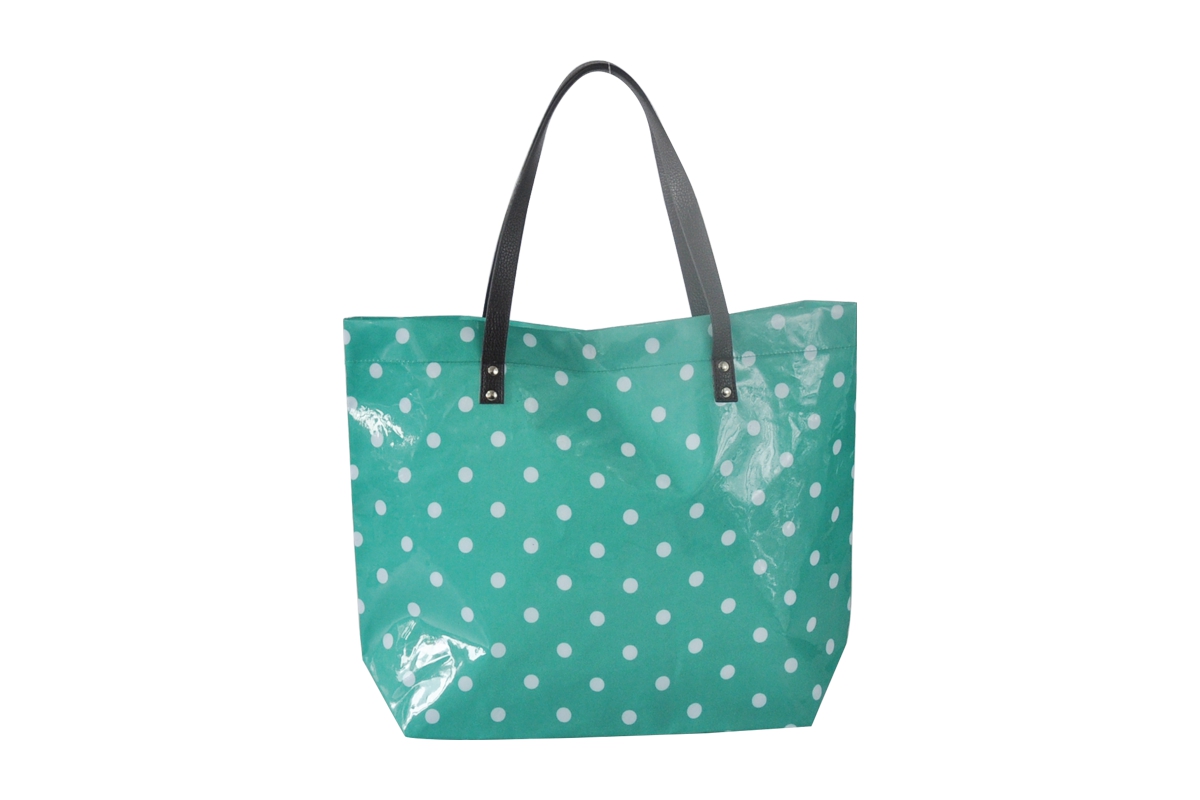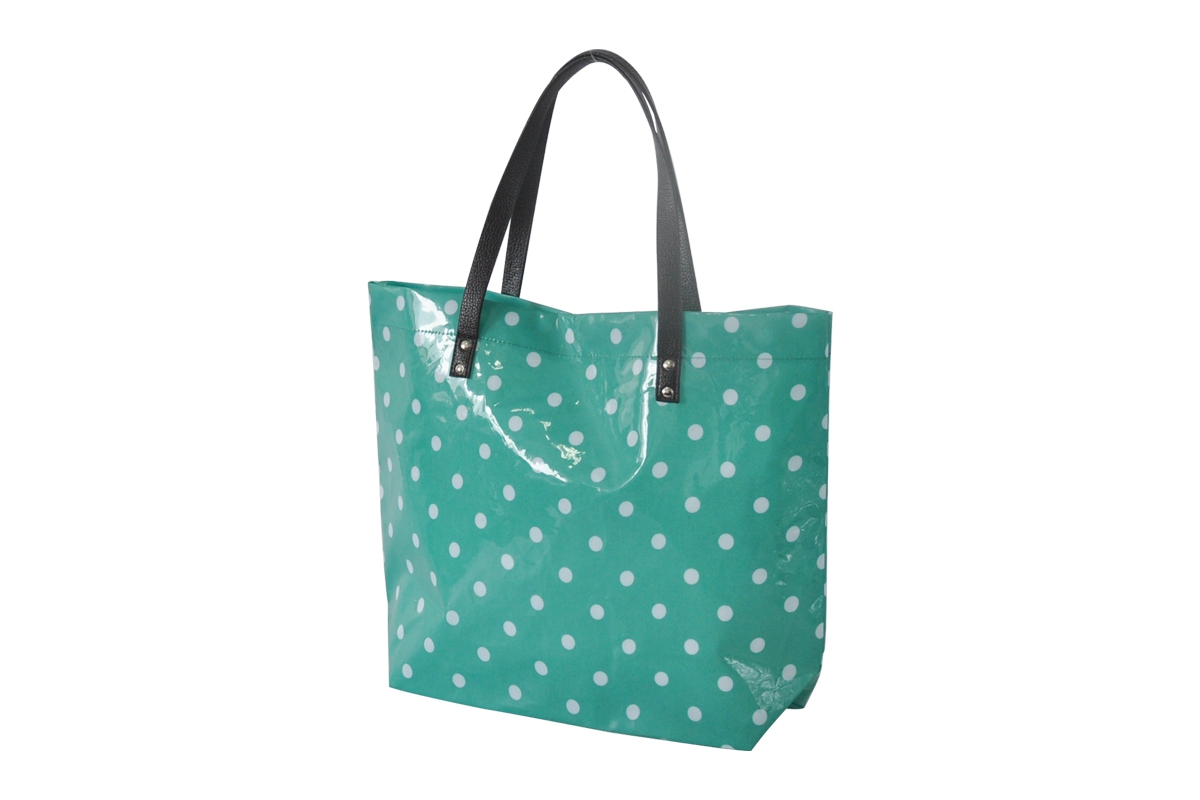190T Polyester reflective bag
- Material 190T Polyester
- Size 37w x 27h x 10 + Handles 50 x 1.5 cm
- Printing Silk Screen Printing or Heat Transfer Printing
- Printing Size 20 x 20 or customize size
- pieces per carton 150 pieces
- Carton Size 57 x 39 x 31 cm
- Total Weight 10 KGS
- Minimum Order Quantity 1000 pieces
PET/RPET bags
PET, an abbreviation for Polyethylene terephthalate, is also marketed as polyester. This fabric originates from two kinds of materials, they are new industrial material and recycled materials.
New industrial materials are made from particles extracted from petroleum by-products. Recycled material is made from discarded plastic bottles, which are pulverized and then woven into fabric. Such as oxford fabric, Non woven, polyester Non woven or stitch bonded Non woven, can be used for vehicle interiors, plastic products and other products. Those recycled fabric are also called RPET.
There are three types of fabric commonly used in the production of shopping bags, polyester Non woven fabric, Oxford fabric and film-covered stitch bonded Non woven fabric. The appearance of polyester Non woven bag and polypropylene Non woven fabric is about the same. Printing techniques could be done on polyester Non woven fabrics are: screen printing, heat transfer printing, heat sublimation printing. Oxford fabric is not only used in clothing and home textiles, but also used to make shopping bags.This Non woven bag surface can do heat sublimation printing, its material is stronger, waterproof, thinner, easy to fold and other advantages. With a variety of coating technique and its different characteristics. Commonly used specifications are 190T+PA, 210D+PA/PU, 420D+PA, 600D+PVC, etc., Meanwhile, it can also be customized according to customer requirements.
recycled
With the strengthening of people's awareness of environmental protection, more and more people begin to pay attention to the recycling of commodies or materials. Because most fabrics or the production procedures of fabrics have more or less impact to the environment. Meanwhile, when a product is reused as an alternative, it does not only save consumers' money, but also has less harmful impact to the environment and is an almost 'absolute' environmental protection practice. When the life span of a certain product reaches to its limit, people tends to pursue the product's remnants recyclability. This practice is considered as the most "environmentally friendly" way to dispose the remnants as well.
Our company has always been committed to environmental protection. Since we entered the industry and at the very beginning of our career, we have been trying to promote and make canvas bags. All the fabric we are using are open-end spinned coarse yarn . The coarse yarns were made of offcust that is made from a spinning mills who apply open-end spinning. Therefore, our canvaws bags are 100% recycled products.
Considering that the consumer groups do not have specific and consistent requirements for our fabrics and the high certification costs, we have not applied for the popular certification in the market for this fabric. In the absence of authentication, the current price of this fabric is preferential and interesting. From a different perspective, this can better help customers save costs.
With the growing demand for recycled products, canvas cannot meet consumers' demand for ever-changing fabrics.We work with our suppliers in order to find a variety of fabrics from the Fabric market in China, explore a variety of alternatives, and try a variety of production processes.
Due to there exists different components and colors of fabric, in the process of sorting must be manual sorting. As far as the market is concerned, it is currently impossible to put it into production using a single process. Although the purpose of recycling waste products has been achieved so far, somehow their production cost is still higher than those of conventional products of the same specifications. We believe that as the market matures and the process continues to improve, customers can use recycled products of high quality and low price in future.
In order to meet the needs of different markets, we are able to process and supply either natural cotton products or recycled products such as polyester or cotton, or can use 100%recycled products or blends with different proportions. Among them, the recycled fabric are divided into two categories, recyclable before consumption and recyclable after consumption. Of course, in order to let consumers rest assured, we can also provide certificates of either fabric, or even transaction proof.
 English (UK)
English (UK)  Deutsch (Deutschland)
Deutsch (Deutschland) 


